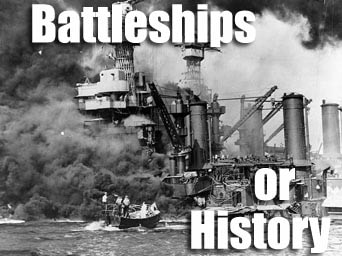 Was WWII Fought to make the World Safe for the Bankers?
Was WWII Fought to make the World Safe for the Bankers?
by Dr. Ingrid Rimland Zundel
Thanks to best-selling author, David Irving, the establishment view that the United States of America became embroiled in World War II as a result of a surprise attack on Pearl Harbour on December 7, 1941 is no longer accepted by major historians. The origins of this conflict, says South African politician and noted banker, Stephen Goodson, have far deeper roots.
Goodson explains the background as follows:
During the 1930s Japan rapidly expanded her industrial production, while the rest of the world, with the exception of National Socialist Germany, stagnated. By 1941 Japan had become the leading economic power in East Asia. Her exports were steadily replacing those of America and England.
Writes Goodson:
- Japan has very few natural resources, so what was the secret of her success? In order to answer this question, it is necessary to return to the year 1929, when one of the twentieth century’s foremost monetary reformers, Major Clifford Hugh Douglas, went on a lecture tour of Japan.
Douglas’s economic theory advocated the transfer of the money creation process from private banks, which create money out of nothing as an interest-bearing debt, to the state. This government created money he termed social credit. He also favored the payment of a basic income or national dividend to each citizen. This dividend would provide consumers with the additional buying power necessary to absorb all the current production of goods in a non-inflationary manner2.
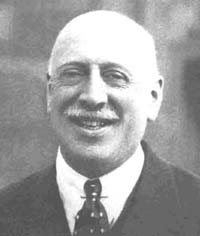
- Douglas’s financial proposals for an honest money system, based on government creating the nation’s money and credit on an interest-free basis, were enthusiastically received by Japanese industry and government.3
All Douglas’s books and pamphlets were translated into Japanese, and more copies were sold in that country than in all the rest of the world put together.4
Since its inception in 1882 the largest shareholder of the Bank of Japan (Nippon Ginko) had been the Japanese Imperial Household. Its reorganization into a state bank, which was administered exclusively for the accomplishment of national interests, was implemented in 1932.
The reform of the central bank was completed in February 1942 when the Bank of Japan Law was remodelled on the Reichsbank Act of Germany of 1939.
Goodson continues:
“The Bank of Japan Law declared that the bank was a special corporation of a strongly national nature. The Bank was ‘to assume the task of controlling currency and finance and supporting and promoting the credit system in conformity with policies of the state to ensure the full use of the nation’s potential’. Further, it was ‘to be managed with the accomplishment of national aims as its sole guiding principle’ (Article 2).
As for the functions of the Bank, the law abolished the old principle of priority for commercial finance, empowering it to supervise facilities for industrial finance. The law also authorized the Bank to make unlimited advances to the government without security, and to subscribe for and to absorb government bonds.
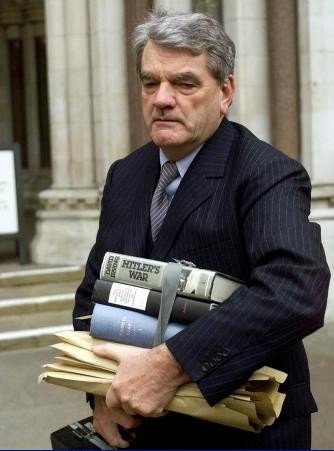
In respect of note-issues the law made permanent the system of the maximum issues limit; thus, the Bank could make unlimited issues to meet the requirements of munitions industries and of the government.
On the other hand, government supervision of the Bank was markedly strengthened. The government could nominate, superintend and give orders to the president and the directors; there was also a clause giving the government more comprehensive powers to give so-called ‘functional orders’ to the Bank, to direct it to perform any function it deemed necessary for the attainment of the Bank’s purpose.
Moreover, the law made a wide range of the Bank’s business subject to governmental approval, including such matters as the alteration of Bank rate, note-issues and accounts”.5
The results of these reforms can be seen in the sustained improvement which took place in the Japanese economy, once the shackles of usury had been removed. During the 1931-41 period, manufacturing output and industrial production increased by 140% and 136% respectively, while national income and Gross National Product (GNP) were up by 241% and 259% respectively. These remarkable increases exceeded by a wide margin the economic growth of the rest of the industrialized world.
In the labour market unemployment declined from 5.3% in 1930 to 3.0% in 1938. Industrial disputes decreased with the number of stoppages down from 998 in 1931 to 159 in 1941.
In contrast to Japan, America had a private, mostly foreign owned central bank, the United States Federal Reserve Bank. Since its establishment on December 23, 1913 under highly suspicious circumstances, this bank had been undermining the US Constitution and destroying the freedom and prosperity of the American people.
A contemporary indictment of the US Federal Reserve may be found in a quotation from the opening paragraphs of a speech given by the Honorable Louis T. McFadden, Chairman of the House Committee on Banking and Currency (1920-31). It was delivered to Congress on June 10, 1932 to the general acclaim of the members present.
“Mr. McFadden. Mr Chairman, we have in this country one of the most corrupt institutions the world has ever know. I refer to the Federal Reserve Board and the Federal Reserve banks. The Federal Reserve Board, a Government board, has cheated the Government of the United States and the people of the United States out of enough money to pay the national debt.
The depredations and the iniquities of the Federal Reserve Board and the Federal Reserve banks acting together have cost this country enough money to pay the national debt several times over.
This evil institution has impoverished and ruined the people of the United States; has bankrupted itself, and has practically bankrupted our Government. It has done this through the defects of the law under which it operates, through the maladministration of that law by the Federal Reserve Board, and through the corrupt practices of the moneyed vultures who control it.
Some people think the Federal Reserve Banks are United States Government institutions. They are not Government institutions. They are private credit monopolies which prey upon the people of the United States for the benefit of themselves and their foreign customers; foreign and domestic speculators and swindlers; and rich and predatory money lenders.”
Mr. McFadden then went on to expose how the Federal Reserve Bank buys votes in the States in order to control the state legislatures; and how they use their vast financial resources in maintaining “an international propaganda” for covering up their previous misdeeds and setting in motion new opportunities for their “gigantic train of crime”.
According to McFadden, these 12 private credit monopolies were “deceitfully and disloyally” foisted on an unsuspecting public by foreign bankers, who in 1904 bankrolled Japan in her war with Russia. In 1917 they financed Trotsky’s political programme in America and paid for his passage to Russia. With the assistance of their branch banks in Sweden, these international bankers “fomented and instigated the Russian Revolution”, which resulted in the “destruction of the Russian Empire”.
Goodson points out something astounding to many of the uninitiated:
It can thus be seen that the US Federal Reserve Bank was intimately involved in plotting and financing the overthrow of the Russian Empire7. With its stranglehold on the media and its placemen occupying most of the key positions in government in 1941, the Bank was in a favourable position from which to manipulate and provoke war with Japan.
Both the Bank of Japan and the German Reichsbank8 with their systems of state creation of the money supply at zero interest – and the inevitability that those systems of finance would be replicated by other countries, in particular those of the proposed Greater East Asian Co-prosperity Sphere – posed such a serious threat to the private investors of the US Federal Reserve Bank, that a world war was deemed to be the only means of countering it.
In July 1939 the United States unilaterally abrogated the Treaty of Commerce of 1911, thereby restricting Japan’s ability to import essential raw materials. These measures were imposed avowedly because of the war in China and were followed in June 1940 by an aviation fuel embargo and a ban on the export of iron and steel in November 19409.
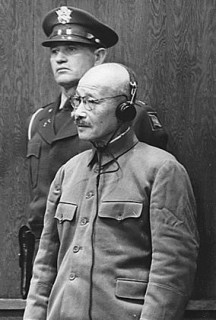
In July 1941 all Japanese assets in England, Holland and America were frozen after Japan had peacefully occupied Indochina, with the permission of Vichy France, in order to block off China’s southern supply routes. At the same time an oil embargo was enforced. Without oil Japan could not survive.
General Hideki Tojo, Prime Minister (October 1941 – July 1944) explains in his diary how the United States continually thwarted Japanese efforts at maintaining the peace. Japan’s peaceful commercial relations were being persistently undermined by the USA and posed a grave threat to her future existence. By means of the economic blockade a noose was being placed around Japan’s neck.
Not only were the United States, England, China and Holland encircling Japan through economic pressures, but naval forces throughout the region in the Philippines, Singapore and Malaya were being redeployed and strengthened.
An American admiral claimed that the Japanese fleet could be sunk in a couple of weeks, while Prime Minister Churchill declared that England would join America’s side within 24 hours.
“Japan attempted to circumvent these dangerous circumstances by diplomatic negotiation, and though Japan heaped concession upon concession, in the hope of finding a solution through mutual compromise, there was no progress because the United States would not retreat from its original position.
In the end, the United States repeated demands that, under the circumstances, Japan could not accept : complete withdrawal of troops from China, repudiation of the Nanking government, withdrawal from the Tripartite Pact.
At this point, Japan lost all hope of reaching a resolution through diplomatic negotiation. Since events had progressed as they had, it became clear to continue in this manner was to lead the nation to disaster. With options thus foreclosed, in order to protect and defend the nation and clear the obstacles that stood in its path, a decisive appeal to arms was made.
War was decided upon at the Imperial Conference on December 1, 1941, and the shift to real operations was made at this point. However, even during the preparations for action, plans were laid in such a manner that should there be progress through diplomatic negotiation, we would be well prepared to cancel operations at the latest moment that communication technology would have permitted.” 10
A further incentive for the unprincipled leaders of the US government to instigate a war with Japan was the Tripartite Pact of September 21, 1940. This was a defensive military alliance under the terms of which, if one of the Axis powers was attacked, the others would come to its defence. By these means Germany was induced to declare war on the USA.11
After numerous diplomatic initiatives including the offer of a summit on August 8, 1941 had failed, Japan was forced into attacking America in order to maintain her prosperity and secure her existence as a sovereign state.
In the ensuing slaughter 2.3 million Americans and Japanese lost their lives. Tens of thousands of allied soldier were subjected to the indignities and sufferings of prisoner of war camp life12.
In a consummate act of hypocrisy the Japanese High Command was placed on trial for “war crimes”. These tribunals were based on ex post facto laws, which resulted in the subversion of 2500 years of Western jurisprudence. The rule of tu quoque (thou also) was cynically ignored, notwithstanding the brutal nuclear attacks on Hiroshima and Nagasaki, where an estimated 239 000 died.13
One of the first acts of the United States occupation forces in Japan in September 1945 was to restructure the Japanese banking system, so as to make it compliant with the norms of the international bankers i.e. usury. The unrestricted financing of the state by the Bank of Japan was abolished and the large industrial combines, the Zaibatsu, were dismantled. This policy was carried out by Joseph Dodge, a Detroit banker, who was financial adviser to the Supreme Allied Commander, General Douglas MacArthur.
On both the 50th and 60th anniversaries commemorating the end of World War II, Japanese officials, including Japan’s prime minister Junichiro Koizumi14 on the latter occasion, have apologized. Clearly such apologies are misplaced and it is perhaps America who should be apologizing to the Japanese for having provoked them into a senseless and useless war, which according to Allied propaganda was fought to make the world safe for democracy.
The reality is that World War II was fought to make the world safe for usury – to ensure the permanent enslavement of mankind through debt and interest.
Notes
1 Thomas Kimmel (grandson of Admiral Husband Kimmel), ’12 New Pearl Harbor Facts’, The Barnes Review, November/December 2004, pp. 37-41. Critical intelligence was withheld from the local commanders to ensure that the “surprise” attack was as spectacular as possible. See also Roger A Stolley, ‘Pearl Harbor Attack No Surprise’, The Journal for Historical Review, Vol. 12, No. 1, Spring 1992, pp. 119-21 who quotes LTC Clifford M. Andrew, a former U.S. Army intelligence officer, who temporarily was assistant chief of staff, military intelligence, general staff, United States Army as follows:
‘Five men were directly responsible for what happened at Pearl Harbor. I am one of those five men ….. We knew well in advance that the Japanese were going to attack. At least nine months before the Japanese attack upon Pearl Harbor, I was assigned to prepare for it.
I was operating under the direct orders of the President of the United States and was ordered not to give vital intelligence information relating to the whereabouts of the Japanese fleet to our commanders in the field.
We had broken the Japanese code … We’d been monitoring all their communications for months prior to the attack …. It was a lie that we didn’t have direct communication with Washington, D.C.’
Stolley concludes by saying the “For the people of the United States both then and now I feel sorrow, for a people to have been so misled, to have been lied to so much and to have so thoroughly believed the lie given to them.’
2.. This forms part of Douglas’s A + B theorem, viz that prices are always being generated at a faster rate than incomes are produced, so that the total prices of all goods in the economy at any particular stage exceed the total buying power of consumers. The national dividend was intended to make up for this deficit of purchasing power, and as a consequence would assist in abolishing the business cycle and the syndrome of poverty amidst plenty.
3. This enthusiasm may be contrasted with the alarm with which Douglas’s ideas were received by the City of London or Square Mile (677 acres). During the 1930s £5 million (a prodigious sum in to-day’s values) was raised by the international bankers in order to neutralize Douglas’s proposals.
4. ‘New Economics’, January 19,1934, p. 8 as quoted in D J Amos, ‘The Story of the Commonwealth Bank’, Veritas Publishing Company, Bullsbrook, Western Australia, 1986, p. 44.
5. Money and Banking in Japan, The Bank of Japan Economic Research Department, translated by S Nishimura, edited by L S Pressnell, Macmillan, London, 1973, p.38.
6. “Collective Speeches of Congressman Louis T. McFadden’ Omni Publications, Hawthorne, California, 1970, Chap XVI, The Treacherous and Disloyal Conduct of the Federal Reserve Board and the Federal Reserve Banks, pp.298-9.
7. In 1914 Russia was the most prosperous nation in the world. She had a small and declining foreign debt and no central bank. See George Knupffer, “The Struggle for World Power”, London, 1971, Chap. 15, Some Details about Russia, pp. 138-46.
8. Stephen M. Goodson, “Bonaparte & Hitler Versus the International Bankers’, The Barnes Review, November / December 2004, pp. 23 -9.
9. Alleged human rights violations were the outward motivation for the imposition of sanctions. However , this may also have been a manoeuvre to protect US oil investments in China.
10. The Journal for Historical Review, Vol. 12, No.1, Spring 1992, Hideki Tojo’s Prison Diary , pp. 41-2.
11. Besides the obligations of the alliance, other factors which influenced the German declaration of war were the persistent provocations of the US Navy in the north Atlantic, and the anticipation that the Japanese would open up a Russian front in the Far East and provide relief for the beleaguered German forces outside Moscow.
12. In view of Japan’s non-ratification of the Geneva Convention in 1929, the Allied Chiefs of Staff have to bear some of the responsibility for the hardship, which they knew their soldiers would have to endure if captured. A recent study by Professor Richard Aldrich of Nottingham University, England ‘The Faraway War, Personal Diaries of the Second World War in Asia and the Pacific’, 2005, Doubleday has revealed that the stereotyping of the Japanese as being cruel and robotic is inaccurate, and that most of them were tough and fair in their treatment of enemy prisoners. In contrast American and Australia soldiers frequently did not take prisoners, but massacred them as “machine-gun practice”. (1943 diary of Eddie Stanton, Australian posted to Goodenough Island off Papua New Guinea). According to a spokesman of the Imperial War Museum, London in a programme broadcast on British Sky television on August 15, 2005, Japanese treatment of Russian prisoners of the Russo-Japanese War (1904-5) and German prisoners of World War I (1914-18) was exemplary.
13. The justification for these bombings was that the conquest of the Japanese mainland would have cost an estimated 500 000 allied lives. Yet these disasters could have been avoided if Japanese peace overtures for a conditional surrender had been accepted in January 1945.
14. According to the September 2005 issue of the monthly journal Right Now, 78 Marylebone High Street, London WIU 5AP on p. 15, ‘Prime Minister Junichiro Koizumi is attacked time and again for continuing to visit a Tokyo shrine (the Yasukini) where Japan’s war dead are deified. The International Herald Tribune and the New York Times refer to these Japanese dead as ‘war criminals.’
Stephen Goodson is the director of a central bank in South Africa. (With credits to Mr. Goodson for his meticulous research.)
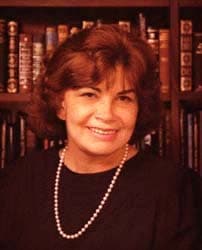
Ingrid Rimland is an award-winning ethnic novelist and documentary producer. Currently she works on a wide-screen feature movie (Category: Contemporary Political Drama) called THE EXPATS.
Born to Russian-German Mennonites in the Ukraine, she experienced World War II as a small child. Multilingual and gifted linguistically, she brings a unique perspective to the Patriot struggle, having lived under four dictators in her young years – Stalin, Hitler, Peron of Argentina, and Stroessner of Paraguay.
Ingrid is proudly married to one of the world’s most politically incorrect human rights activist, Ernst Zundel, kidnapped by America’s Zionist-beholden government goons on American soil in 2003 for having spoken Truth to Power about the so-called “Holocaust”. She has earned a doctorate in Education from the University of the Pacific and been a U.S. citizen since 1973.
ATTENTION READERS
We See The World From All Sides and Want YOU To Be Fully InformedIn fact, intentional disinformation is a disgraceful scourge in media today. So to assuage any possible errant incorrect information posted herein, we strongly encourage you to seek corroboration from other non-VT sources before forming an educated opinion.
About VT - Policies & Disclosures - Comment Policy



